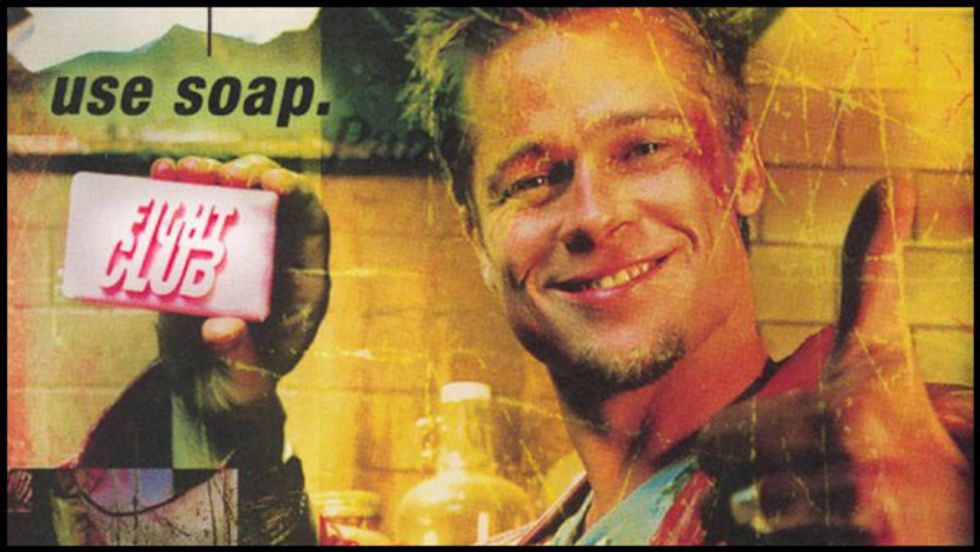For anyone who hasn’t seen the film, there will be spoilers in this article, so this is your warning.
Invariably, the conversation of what’s your favorite movie? comes up at a party, or in a group of friends, and whenever I say “Fight Club,” either people nod emphatically in agreement, or someone quickly shouts out “Hey! Don’t talk about Fight Club!”
I usually laugh quietly or nod if I’m tired or not feeling particularly motivated, which is more often than not, but when I feel like explaining film theory and psychology, I say something like this:
Tyler establishes rules for Fight Club, eight in total, the first two being, “You do not talk about Fight Club.” Now, to the average viewer, this seems like a responsible request, due to the secrecy of Tyler’s plans and his eventual terrorist style of attacks that he, with Project Mayhem, performs. But, there is another layer to this.
How could Tyler ever hope for Fight Club to grow outside of the, say, 50 or so people that watched Edward Norton (and Brad Pitt?) fighting outside of Lou’s Bar before they moved into the basement?
That’s the exact point: They are given positive reinforcement and rewards for breaking the rules. The club grows and Tyler gains more followers, and therefore, power, when people talk or invite people to the meetings.
Just think about the kind of "homework" assignments that Tyler has the Club doing: erasing VHS tapes, blowing up computers, destroying coffee shops. It’s all anti-consumer, of course, but it also goes against rules and even common sense.
The mind altering that Tyler is able to do culminates in how they respond to Bob’s killing, as the stronger personalities (Angel Face and the Mechanic) treat Bob as evidence that could link them to the crime and not as an actual person.
This psychological shift of going against the basic moral compass and instead rebel against society, and relish in the results of this as it is a reward, shows that Tyler never had an expectation that anyone would follow the first two rules of Fight Club, and instead used it as the first step in the conditioning of his Space Monkeys.
There is a fascinating thread on Reddit about this very topic, stemming from this image:
On the aforementioned thread, redditor Hungry_Freaks_Daddy (Side note: I have no idea what the name means, but I like it) has a similar theory that Tyler discouraged talking about Fight Club but was OK with people bringing the curious others to the Club with them, utilizing the show-don’t-tell mentality. He wanted Fight Club to have attention drawn to it and wasn’t necessarily trying to encourage rule breaking (although that is not a bad outcome, especially for Tyler).
Another redditor, DaRalf, counters with another interpretation, that the story is truly about being a free person, and how if you “talk about Fight Club,” you talk about what your experiences are, that they will mixed with the opinion and experiences of others, and therefore you lose your individuality and become molded by someone else’s ideas.
Whatever view you agree with, it is hard to deny that the rule goes deeper than simply having as few people know about Fight Club as possible, which is a general surface level reading and understanding of the film and of the line.
Anyway, that’s all I have. (Thumbs up, Tyler!)
It’s a really neat party trick to potentially ruin someone’s fun, so if you’re feeling particularly annoying, then just bust out this long-winded and possibly psychological explanation behind one of the most popular and quoted pieces of film dialogue in the history of cinema.
Warning, though: They may want to punch you by the end of it.
"Das Jus Me Doe!" - the1janitor
What do you think? What theory do you like? Do you even like this movie?
Let me know in those comments.
Thank you for reading!
























